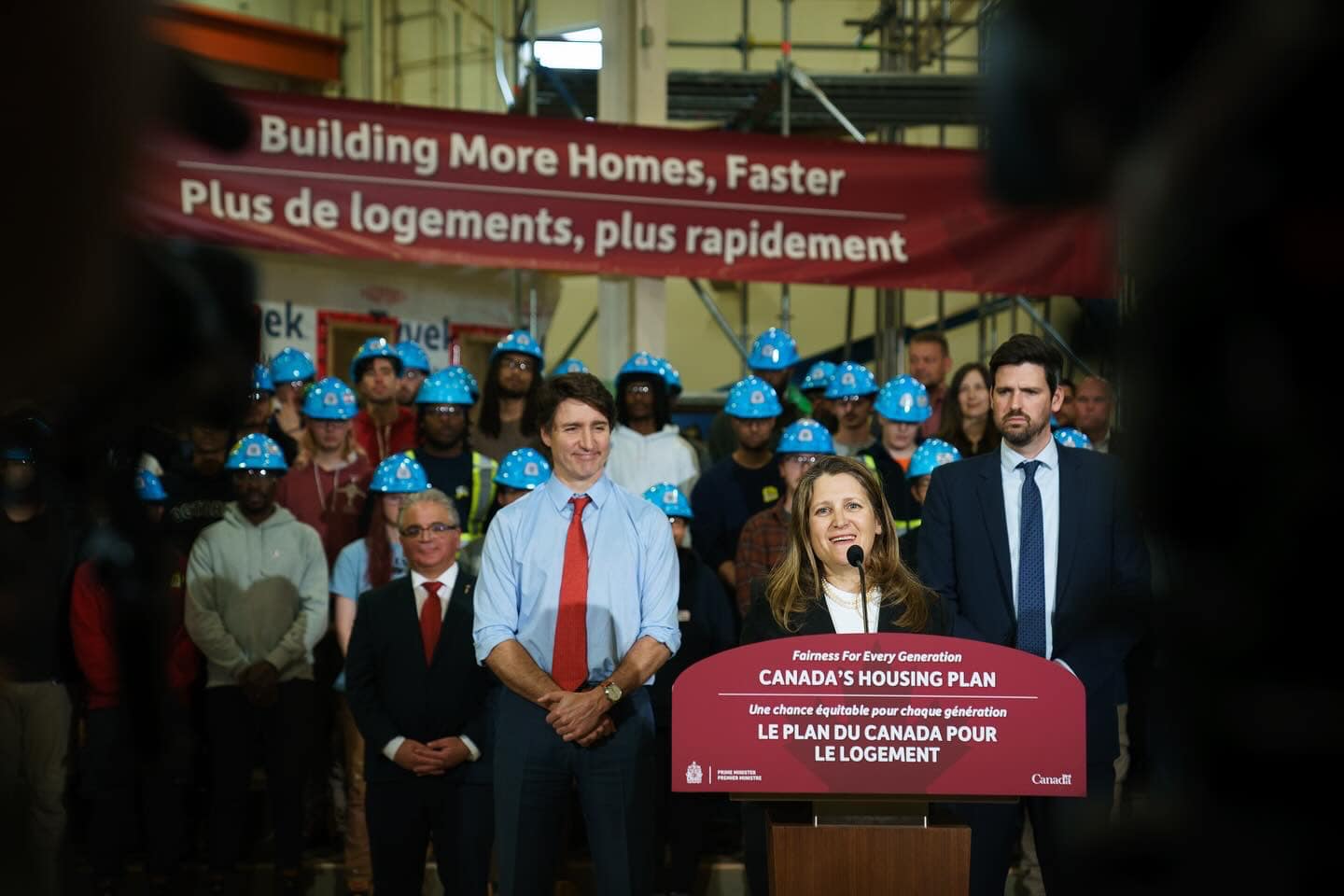Pressure from charities prompts feds to ease proposed tax on wealthy Canadians in Budget 2024
Why It Matters
Canada's wealthiest make up a large share of the total donations to the charitable sector. Last year, the government proposed reducing donation tax incentives for wealthy Canadians. Many charities petitioned the government to reverse the course, fearing a drop in donations.

In Budget 2024, the federal government proposed a compromise with the charitable sector around a previous promise to reduce donation tax incentives for wealthy Canadians.
While some welcome the government’s policy change, others remain unsatisfied.
In last year’s budget, the government promised to reduce two donation tax incentives for high-income Canadians as part of broader changes to the alternative minimum tax (AMT) to increase tax fairness.
The government proposed reducing the donation tax credit from 100 to 50 per cent for individuals calculating their taxes using the AMT method and requiring very wealthy Canadians to pay 30 per cent of the capital gain on some types of donations. (Currently, capital gains have a total exemption.)
On Tuesday, the government signalled it would move forward with the capital gains promise but proposed to soften the donation tax credit allowance pledge from 50 to 80 per cent.
The government’s plan isn’t perfect, but it should alleviate most of the concerns of charities because the tax credit is quite substantial now, said Jamie Golombek, managing director of tax and estate planning at CIBC.
“It’s not a complete win, but it is a win,” he said.
Philanthropic Foundations Canada, the country’s association of private foundations, also welcomed the news, noting in a press release that the shift will “reduce potential negative impacts on charities.”
But Bruce MacDonald, CEO of charity advocacy organization Imagine Canada, disagreed.
Imagine Canada supports the government’s pursuit of tax fairness, but he said such policy goals should be achieved without reducing donation incentives for charitable giving.
“This announcement comes as a blow to charities, many of which are already struggling with reduced capacity.”
Changes will result in a drop in proposed AMT-related tax revenue
The shift will also result in less tax revenue to pay for social spending.
In 2023, the government estimated the package of AMT changes would raise $2.9 billion over five years.
It now projects that the revised AMT changes will raise about $2.3 billion instead, a reduction of $622 million.
Most of that loss can likely be attributed to the donation tax incentive change, as the other AMT tweaks the government has proposed are relatively minor, Golombek said.
Still, Olivier Jacques, an assistant professor at the University of Montreal who studies inequality, said it’s essential to holistically assess the government’s Budget 2024 tax measures.
While Jacques supported the government’s 2023 donation incentive reduction promises, he said the government’s new, separate proposal to raise capital gains on Canada’s highest income earners would generate much more tax revenue than had been proposed with the AMT shifts.
On Tuesday, Finance Minister Chrystia Freeland promised her increase in capital gains tax will affect less than one per cent of very wealthy Canadians — people with an average annual income of $1.4 million — and will raise $19.4 billion over five years.
“The policy objectives are similar, but you’re generating significantly more revenue” with the capital gains tax increase, Jacques said.
Political compromise, spurred by sector advocacy?
The government’s softening of the donation tax credit inclusion rate follows months of sustained advocacy by charities and several sector associations.
Following the 2023 budget announcement, some wealthy donors contacted charities, saying they planned to reduce their giving if the government’s AMT changes went through.
Concerned about a revenue drop, hundreds of charities contacted the Department of Finance to voice their concern about the proposed donation incentive reductions that Imagine Canada and the Canadian Association of Gift Planners mobilized.
Jacques said the softening of the inclusion rate would allow the government to say they listened to the charitable sector.
However, MacDonald said the government’s decision not to scrap both charity-related AMT policies entirely means their advocacy will continue.
“It’s too early to tell if there’s any additional room for maneuvering,” he said. But we’re going to continue to represent the interests of charities, who are still going to be concerned about revenue reductions.”
MacDonald expects the government to table the AMT changes in either the first or second budget implementation acts, typically in spring or fall.
